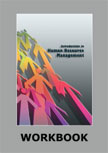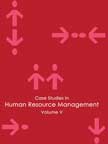IG Metall - A Trade Union in Crisis?
|
|
ICMR HOME | Case Studies Collection
Case Details:
Case Code : HROB084
Case Length : 16 Pages
Period : 1994-2006
Pub Date : 2006
Teaching Note : Available
Organization : IG Metall Trade Union
Industry : Diversified
Countries : Germany, Europe
To download IG Metall - A Trade Union in Crisis? case study
(Case Code: HROB084) click on the button below, and select the case from the list of available cases:

Price:
For delivery in electronic format: Rs. 400;
For delivery through courier (within India): Rs. 400 + Rs. 25 for Shipping & Handling Charges
» Human Resource and Organization Behavior Case Studies
» HRM Short Case Studies
» View Detailed Pricing Info
» How To Order This Case
» Business Case Studies
» Area Specific Case Studies
» Industry Wise Case Studies
» Company Wise Case Studies

Please note:
This case study was compiled from published sources, and is intended to be used as a basis for class discussion. It is not intended to illustrate either effective or ineffective handling of a management situation. Nor is it a primary information source.
Chat with us

Please leave your feedback

|
|




<< Previous
Crisis at IG Metall
|
With rapid globalization and a changing business environment, IG Metall, with
its traditional and inflexible views on labor relations, began to face a crisis.
Many analysts believed that IG Metall had become marginalized and irrelevant to
the German economic environment. They cited the decline in the union's
membership levels and the emergence of 'ver.di' as the largest trade union for a
brief period in Germany, as proof of this view.
The membership rolls of IG Metall had not increased very significantly since the
1980s. During the 1990s, around one million members left IG Metall; this was
almost one-third of its total strength.
|

|
This happened despite the addition of one million members
from East Germany after German reunification in 1989, and the merger of the
trade unions from other industry sectors.
In 2002, IG Metall represented less than 30 percent of active employees in the
industrial sector in Germany. One third of its members were retired, less than
seven percent of the members were below 25 years old, and women members were
leaving the organization in large numbers...
|
|
The Future
According to many analysts, events like the re-unification of Germany, end
of the cold war division of Europe, growth of a single European market and
the acceleration of globalization have all affected the German economy.
However, the institutional framework has not moved to adapt to these
changes.
Some policy makers and analysts felt that the changing conditions
represented a severe challenge to IG Metall, due to its old fashioned views
on labor relations... |
Exhibits
Exhibit I: Logo of IG Metall
Exhibit II: Organizational Structure
Exhibit III: Democratic Structure
Exhibit IV: Description of IG Metall's Organization Structure
Exhibit V: Composition of the IG Metall Members (in September, 2004)
Exhibit VI: Changing Union Participation Rates in Various Countries in 2000
Exhibit VII: Pictures of Cover Page and Illustrations in 'Metall'
|
|










